I have the following object:
public class Book {
private Long id;
private Long bookId;
private String bookName;
private String owner;
}
Represented from following table:

Basically, a book can be owned by multiple owners i.e. Owner "a" owns books 1 and 2.
I have a basic function that will when passed a book object, will give its owner(s) in a List.
private List<String> getBookToOwner(Book book) {
List<String> a = new ArrayList<>();
if (book.getOwner() != null && !book.getOwner().isEmpty()) {
a.addAll(Arrays.asList(book.getOwner().split("/")));
}
return a;
}
I want to use that to apply to each book, retrieve their owners and create the following Map.
Map<String, List<Long>> ownerToBookMap;
Like this:
How do I use streams here?
//books is List<Book>
Map<String, List<Long>> ownerToBookMap = books.stream().map(
// apply the above function to get its owners, flatten it and finally collect it to get the above Map object
// Need some help here..
);
